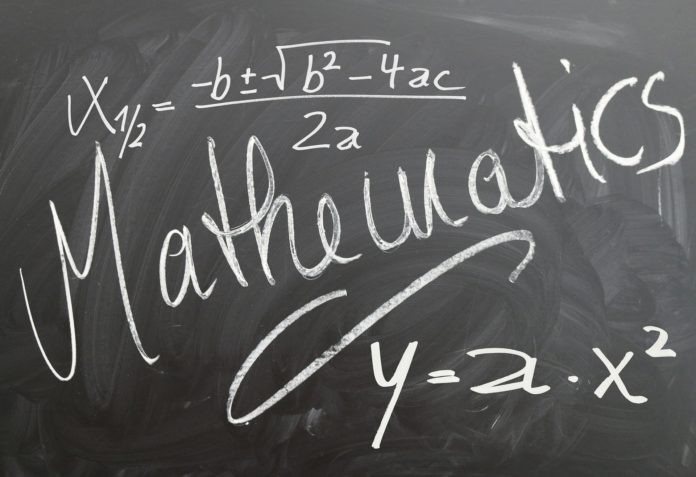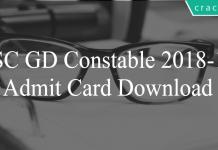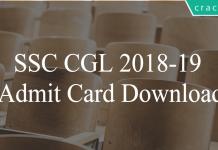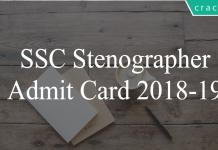SSC CGL is one of the most sought after exams in India. Every year, millions of candidates take this exam for vacancies that hardly hit five digits. This article is about how to prepare Quantitative Aptitude for SSC CGL. Aspirants can prepare for SSC CGL online at their time of convenience.
Contents
Quantitative Aptitude for SSC CGL:
SSC conducts CGL exam in 4 tiers. Tier 1 exam contains 4 sections of 25 questions each. Each question carries 2 marks. For a wrong answer, SSC deducts 0.5 marks.
The four sections in tier 1 exam are
1.Quantitative Aptitude
2.General Intelligence and Reasoning
3.English Language
4.General Awareness
There are no sectional timings or sectional cutoffs in this exam. Candidates are free to move between the sections. SSC uses Tier 1 exam scores to shortlist candidates for further processes. Aspirants can take free SSC CGL mock test for practice.
Tier 2 exam consists of 2 sections.
1.Quantitative Aptitude
2.English Language
Paper on Quantitative Aptitude for SSC CGL tier 2 contains 100 questions carrying 2 marks each. English language paper contains 200 questions of 1 mark each.
It can be seen that the weightage of Quantitative Aptitude in SSC CGL is very high. It contributes about 250 marks of the total 600 marks.
SSC has decided to reduce the time limit of the Tier 1 exam from 75 minutes to 60 minutes. So speed, as a parameter, is paramount.
100 SSC CGL (latest pattern mocks) – Rs. 199
SSC CGL Free Study Material – 18000 Questions
Many aspirants often face the question of how to prepare Quantitative Aptitude for SSC CGL. Banking aspirants have a whole range of topics to cover for SSC CGL. This article tries to shed some light on the topics asked in this exam.
How to prepare Quantitative aptitude for SSC CGL Exam:
Quantitative Aptitude is usually one of the high scoring sections in SSC CGL examination.
SSC CGL Quantitative aptitude section contains questions on various topics. Unlike bank exams where the emphasis is on ratio, proportions and interests, SSC asks questions from varied topics.
The topics from which questions are usually asked in Quantitative Aptitude for SSC CGL are as follows.
1. Number Systems
2. Ratio, proportion and Averages
3. Percentages, profit and loss
4. Compound Interest and Simple Interest
5. Algebra
6. Unitary Methods
7. Geometry
8. Mensuration
9. Trigonometry
10. Data Interpretation
Number systems:
SSC asks questions based on cyclicity, remainders, fractions, simplification, series and sequences, etc. Candidates must master this section as it lays the foundation for other sections. Read more about number systems tips for SSC CGL.
Aspirants must be well versed with terms and definitions such as natural numbers, whole numbers, rational numbers, irrational numbers, fractions and decimals.
Ratio, proportion and Averages:
One must have an idea about fractions and decimals to start this topic. Candidates must try to know what happens when they add or subtract the same value to both the numerator and denominator. Many variations of the same concept are asked and it is important to practice them well.
Averages and Allegations questions are usually simple. It is essential to have a good grip of these topics to perform well in DI.
Download SSC CGL Important Questions PDF
Percentages, Profit and loss:
Again, a crucial topic from the perspective of DI. Candidates must understand the basic concepts like marked price, cost price, Selling price, discounts, profit, loss, and break-even very well.
Simple Interest, Compound Interest:
This section is just an extension of percentages. Hence, it is mandatory to understand percentages well to ace this topic.
Some common questions like the difference in interests over some period are usually asked. Also, aspirants must try to understand terms like compounded half yearly, compounded quarterly, etc.
Algebra:
This is a very important topic from the perspective of SSC CGL. SSC asks a large number of questions from this topic. Identities are of utmost importance. Also, the ability of aspirants to frame equations from the description given matters a lot.
Unitary method:
This is an indispensable topic for any competitive examination. Unitary methods comprise those topics that involve work, the rate at which work can be completed, people, and time.
Popular topics that come under unitary methods are as follows.
1.Time, Speed, and Distance
2.Time and work
3.Races
4.Effective speed, relative speed (elevators, Boats and streams)
Geometry:
This is the topic where banking aspirants must start working immediately. Lines, line segments, triangles, quadrilaterals, polygons, circles, chords, tangents, secants are some of the topics to be thorough with.
Similarity, congruence, cyclic quadrilaterals and other such topics must be mastered to have a decent shot in this topic.
You can read geometry for SSC CGL for more details regarding this topic.
Mensuration:
Mensuration is an extension of geometry. Areas, volumes, perimeters are some of the important topics in this section. Aspirants must try visualising the concepts to understand them better.
Trigonometry:
Candidates must have a strong hold over the angle and corresponding values table. Most of the problems can be solved by using the table and substituting the values. However, learn basic identities in trigonometry. Read more about Trigonometry tips for SSC CGL.
Download SSC CGL Maths Formulas PDF
Data Interpretation:
This is a topic where a candidate can score without even preparing. However, a strong hold over percentages, ratios and proportions is necessary to complete the questions fast. Also, having good calculation skills goes a long way in solving these questions.
Some general tips:
Try to solve using intuition:
Most aspirants confuse gut feel and guesswork for intuition. Rather than being hardcore algebraic, try to solve the problem in an easier to understand way.
Use shortcuts only after mastering the traditional method:
Never solely rely on shortcuts to solve a problem. Most aspirants cannot solve Mixture questions without the X method. Understand a problem and its solution. Then, try to formulate your own methods.
Also, use shortcuts only when you are confident of them. Read about SSC CGL maths tricks and shortcuts for more.
Remember,“Never Sacrifice your Sure footing for a Killer stroke”.
Try to solve problems without using paper:
This, in turn, strengthens your perception skills and mental calculation skills. Solving questions in mind allows you to process data fast.
SSC CGL Solved Previous papers
You can take free SSC CGL mock test for practice.
Read about how to prepare for Reasoning section for SSC CGL and how to start English preparation for SSC exam.






[…] Quantitative Aptitude […]
[…] For generalist posts, tier 2 exam is for 400 marks.It consists of 2 papers- English language and quantitative aptitude. Read more about SSC exam pattern and […]